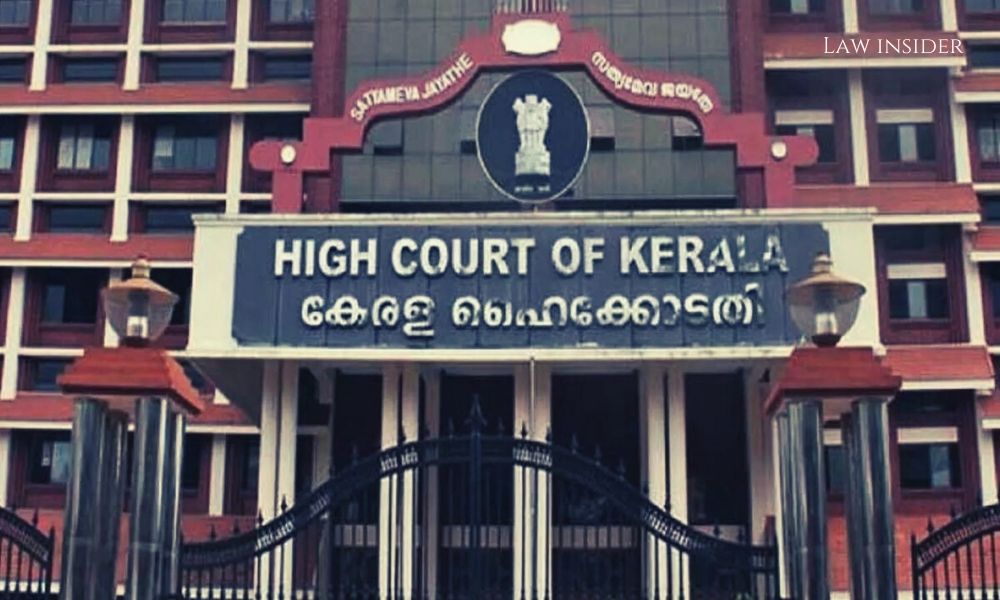Prerna Gala
Published on: 15 September 2022 at 18:55 IST
The Kerala High Court has ruled that the right to be heard in a lawsuit cannot be overturned unless the opposing party commits a mistake.
According to Justice P. Somarajan, “audi alteram partem,” or the right to be heard, is a key tenet of the legal system.
“The “right to be heard” in legal parlance, especially in litigation, is the most valuable right, which cannot be defeated in any manner except by the default of the opposite party. The principle behind the maxim “audi alteram partem” is well recognised and adopted in the judicial system as one of the fundamental guiding principles”, the Court said in its judgment.
The Court determined that while orders made without notifying the other party would constitute ex-parte orders, their legal ramifications would differ significantly from those of ex-parte orders made with notice to the opposing party.
According to the sole judge, unless the other party’s absence is justified by a valid justification, the order in the latter situation will be binding on them.
“If the absence is without any lawful excuse, the ex parte order or decree would be binding on the opposite party. In the latter case, every order passed after affording an opportunity of being heard would stand binding on the opposite party,” the judgement stated.
Since it lacks the opportunity to be heard in the first scenario, it won’t bind the parties.
“But in the former case, it may not have any such binding force on the opposite party, since it is deprived of “audi alteram partem” – the right to be heard, which is the fundamental requirement in the legal parlance to make it binding on the parties,” the Court said.
The judge summed up that when issuing an ad-interim order without giving notice to the person who will be harmed by it, the binding force is based on the right to be heard rather than the jurisdiction granted to any court.
“In short, what actually governs a “binding force” or “binding nature” is really resting on the “right to be heard” and not on the authority or jurisdiction vested with any court in the matter of the issuance of any ad interim order or precautionary measure, without notice to the opposite party or to the person who will be prejudiced by the order affecting his interest,” the judgment stated.
The court went on to say that an order passed without giving the opposing party notice cannot be subject to Section 36 CPC, and it cannot be carried out through the court system unless it is combined with another order after notice to the opposing party.
The names Raja Biri and Raja Bidi were allegedly used in violation of trademarks in the instant dispute between the parties.
The appeal of an ex-parte ad interim injunction that barred the appellants from operating their business and was handed down before a notice was sent was being considered by the court.
The 30-day deadline passed without the matter being heard on the merits, despite the appellants’ appearance and filing of their reply. The appellants therefore requested an early hearing pursuant to Order 39 Rule 3 A of the Code of Civil Procedure (Court shall decide an application for injunction within 30 days) (CPC).
The matter, however, was not heard on the merits despite the application.
The trial court implemented the ex-parte interim injunction given to the appellants in the interim and, as a result, constituted a Commission to gather the defendants’ materials distributed to various stores and provided the Commissioner with police protection.
The Commissioner, who was under police protection, gathered all the appellants’ property that had been distributed to various stores.
The respondents argued before the High Court that Section 135 of the Trade Marks Act, 1999 gives the trial court full authority to grant even an ex-parte ad-interim injunction without giving the appellants notice.
However, the Court disagreed with this contention.
The trial court’s implementation of the ex-parte ad interim injunction passed before issuance of notice to the party by appointing a Commissioner and providing police protection without hearing the appellants, even though they filed a counter, was found to have violated Section 135 of the Trade Marks Act and Order 39 Rule 3A CPC.
The court ruled that when making ex parte interim orders in cases involving claimed trademark or trade name infringement or passing off, the court should exercise greater caution and diligence.
“An ad interim injunction shall not be granted in derogation of the right of the opposite party. The exercise of jurisdiction to issue an ex-parte ad interim order before notice to the opposite party must reflect the proper consideration of all the above said aspects”, the judgment stated.
As a result, the court allowed the appellants’ motion to transfer the matter to the Principal District and Session Court.

